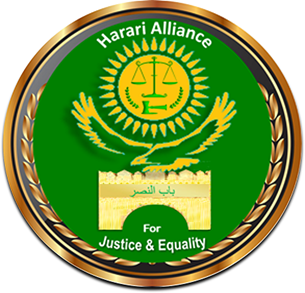We are at a Crossroad
By FT Omar
It has been a little more than a year since change has downed in the Ethiopian political scene and judging from what transpired since, it is safe to assume that the nation is fighting every which way to stay in the right course. The changes I have witnessed so far instills a great deal of hope coupled with the uneasiness that it might veer in the wrong direction at a moment’s notice. As an integral part of Ethiopia, the Harari region is also getting its fair share of the political tumult that is engulfing the whole country.
Let us begin by looking at the structure of the Harari regional state and how it came into being. The region is slightly different than the rest of Ethiopia’s regional states in terms of size, population and power sharing arrangement. It is the smallest in geographical size with a fraction of the population compared to almost all the regions. It also shares power equally between the Hararis and the Oromo people, the two ethnic groups that have inhabited the regions for hundreds of years. Again, compared to the population of other ethnic groups in the region, the indigenous Hararis comprise a fraction of the total, and this fact has been a bone of contention among certain sections of the Ethiopian political pundits throughout the existence of the region. Even though it is not the object of this piece to dwell on the merits of the role of Hararis in the power sharing arrangement, suffice it to mention that Haararis have been indigenous to the region for more than a thousand year and their claim to the land is not disputable. A good number of Hararis were forced to leave their land after they suffered defeat by the expansionist feudal power of Menelik II in the turn of the last century. Since the occupation, Hararis were not only scattered across the nation, abandoning their home, but other ethnic groups were quick to take their place in their motherland. This process was in place for more than a century and that is the main reason for the dwindling number of Hararis now inhabiting their land.
If one correctly analyze the historical background of the Harari people, it would be safe to assume that there should not be any contention as to the right of Hararis to have their say in governing their affairs and play their rightful place in the body politics of the region. In the last twenty-seven years of the rule of the Ethiopian Peoples Revolutionary Democratic Front (EPRDF), a semblance of remedy was put in place to correct the historical harm the Hararis underwent through subsequent feudal and dictatorial governments. But again and again, they were forced to witness the recurrent assertion that Hararis have a disproportionate share of power in the region compared to others even though the lion’s share of the resources and services were consumed by other ethnic groups who live side by side with them. As it stands right now, Hararis have a very miniscule percentage of the power sharing arrangement even though the name and structure does not reflect that. In the view of some political groups opposing the present arrangement in the region, they would like to see Hararis fully deprived of all political power in the region. And the question remains, is this a fair and just deal to the Hararis who have owned and called this place home for more than a millennia? Does the mere fact of their small number compared to other ethnic groups relegate them to a second-class citizenship in their own land? No, I do not believe that should be the case. And I do believe that there are thousands of peace and justice loving people in the region and elsewhere in the country who can differentiate between right and wrong and do the right thing that benefits both Hararis and other ethnic groups who call the region home.
It is my belief that this land that is shared by Hararis, Oromos and other ethnicities is quite enough for all to live harmoniously side by side as friends and neighbors as they have done throughout the centuries. Size of land was never an issue and it never was in many parts of the world with similar conditions. The only thing lacking is the willingness of some groups to have the foresight to see beyond what is simple. I believe that everyone should share this land and develop it to its full potential and share all the bounties together. It is doable and it is the right thing to do.
Disclaimer-
The views and opinions expressed here are those of the author and do not necessarily reflect the official policy or position of Harari Alliance for Justice & Equality (H.A.J.E.).
